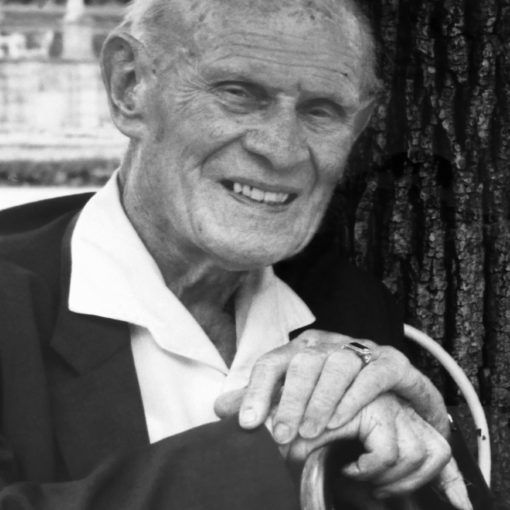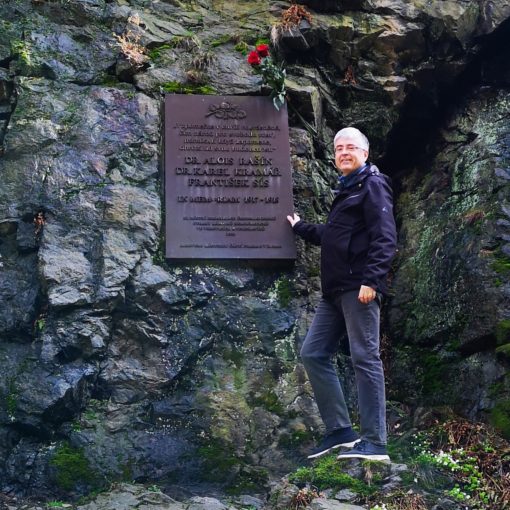“Brotherhood for me also means being a Brother to my employees and maintaining a good relationship with the clerks and the workers, and nowadays making heavy financial sacrifices to give my employees the opportunity to work.” This credo guided Brother Heřman Bondy through his Masonic life until the fateful day of August 11, 1942, when, at the age of 65, he went to the Eternal East in the concentration camp Svatobořice.
World War II brought the same fate to most of his family relatives, who were murdered as Jews in various camps set up by the Third Reich.
Heřman Bondy was an important part of a whole generation of Jewish textile entrepreneurs who shaped the character of this industry in the late 19th and early 20th centuries.
Brother Heřman Bondy, a factory worker in Malá Skalice near Česká Skalice, was born on December 20, 1876. In 1895, he joined his father Jakub Bondy’s business (mechanical weaving mill) in Malá Skalice and in 1908, as a partner, he founded a cotton spinning mill in Jaroměř. Heřman married Ella Kafková in 1908 and they had two children, Bedřich and Věra.
Like other textile factories, Heřman Bondy’s factories also stagnated after the establishment of Czechoslovakia and only revived in 1925-1929. In 1927, 420 mechanical looms were in operation and 300 workers were employed. Heřman Bondy produced colourful cotton and linen goods, which he exported to many European countries, Africa and Asia.
At the time of the Great Depression, the situation changed again. For the record, between 1930 and 1933 the company experienced a rapid decrease in net profit to only CZK 5,124 in 1931, and in the following years of the crisis the company reported only losses. From 1936 onwards, however, the company managed to get orders and made a profit of CZK 287,370, and it was a success that it managed to maintain its profits in the following years, even though they did not reach such a level. Heřman Bondy’s factories, also because of his Masonic attitudes, overcame the consequences of the crisis. Unfortunately, 1938 was the last year that Heřman Bondy ran his factories. According to the Nuremberg Laws, Jews were not allowed to engage in business in the Great German Reich, including the Protectorate of Bohemia and Moravia.
March 15, 1939 brought finality to the lives of the Jewish factory workers in the form of resignation from the management and the imposition of forced administration. Heřman Bondy’s factories were then arized by a German citizen Eduard Schreiber from Vrchlabí.
In his Masonic life, he followed his father, Jakub Bondy, who had been a Mason since 1881 as a member of the Humanitas Lodge in Vienna. He joined the Order through him and the support of his friends, Brother J. Beck of Mladá Boleslav and Brother Gründmann of Vienna. He was admitted to the Vienna Humanitas Lodge on January 19, 1908 in Bratislava. However, due to the distance of his residence in Česká Skalice, he was able to attend the works of his Lodge in Vienna very little and only attained the degree of an Entered Apprentice. In 1919 he learned that a J. A. Komenský Lodge had been founded in Prague and was admitted in 1920. On April 27, 1926 he was promoted to the Master Mason degree. Brother Heřman Bondy was a modern Mason and enjoyed visiting various Lodges in Budapest, Vienna, Berlin, Stockholm and elsewhere until the outbreak of World War II and the implementation of the Nuremberg Laws, which heralded his untimely passing.
However, he was able to pass on his ideas to his children, they survived the war and their journeys took them across the UK to Canada and the USA.
David Ř.



